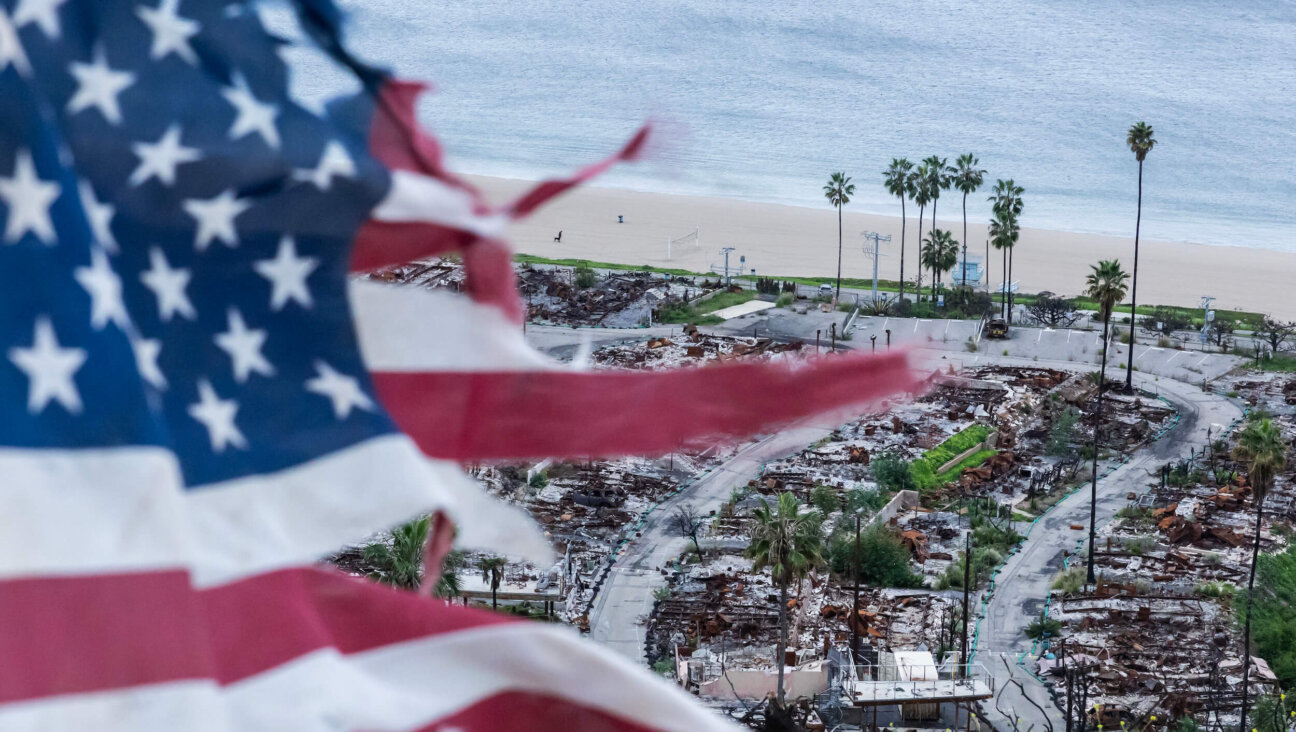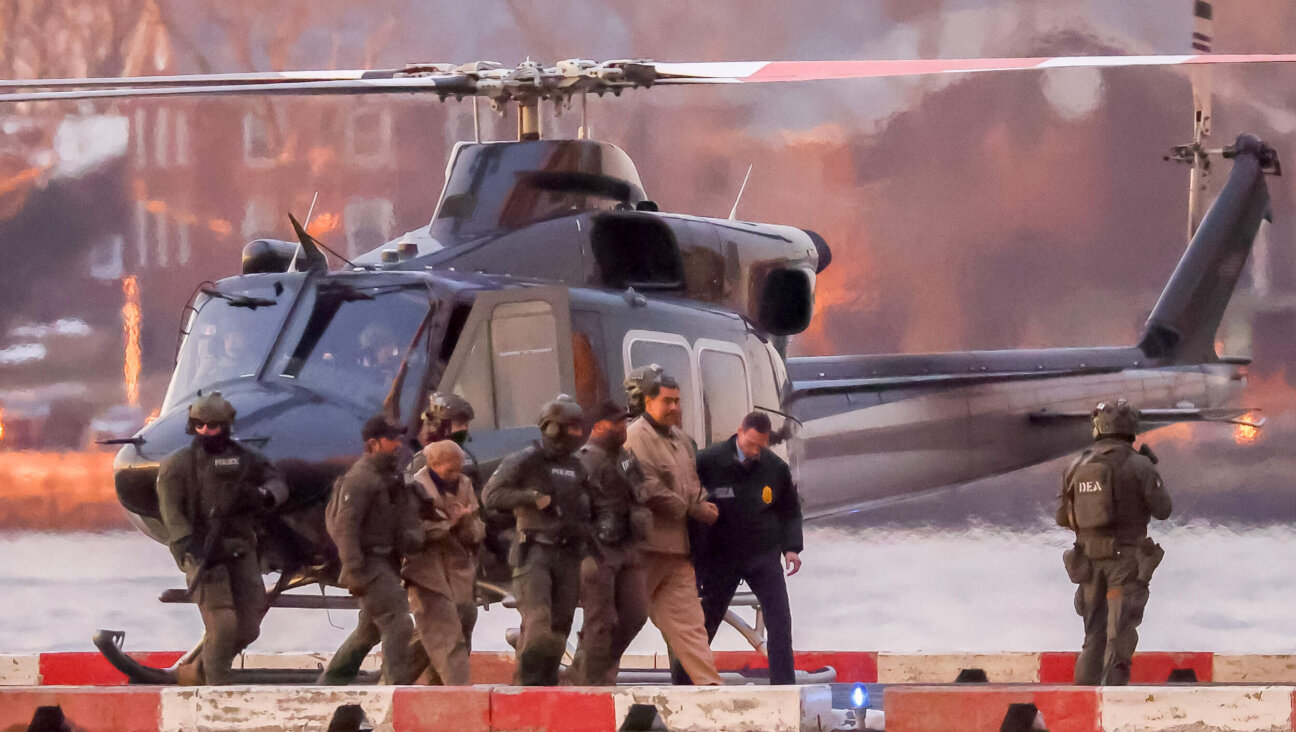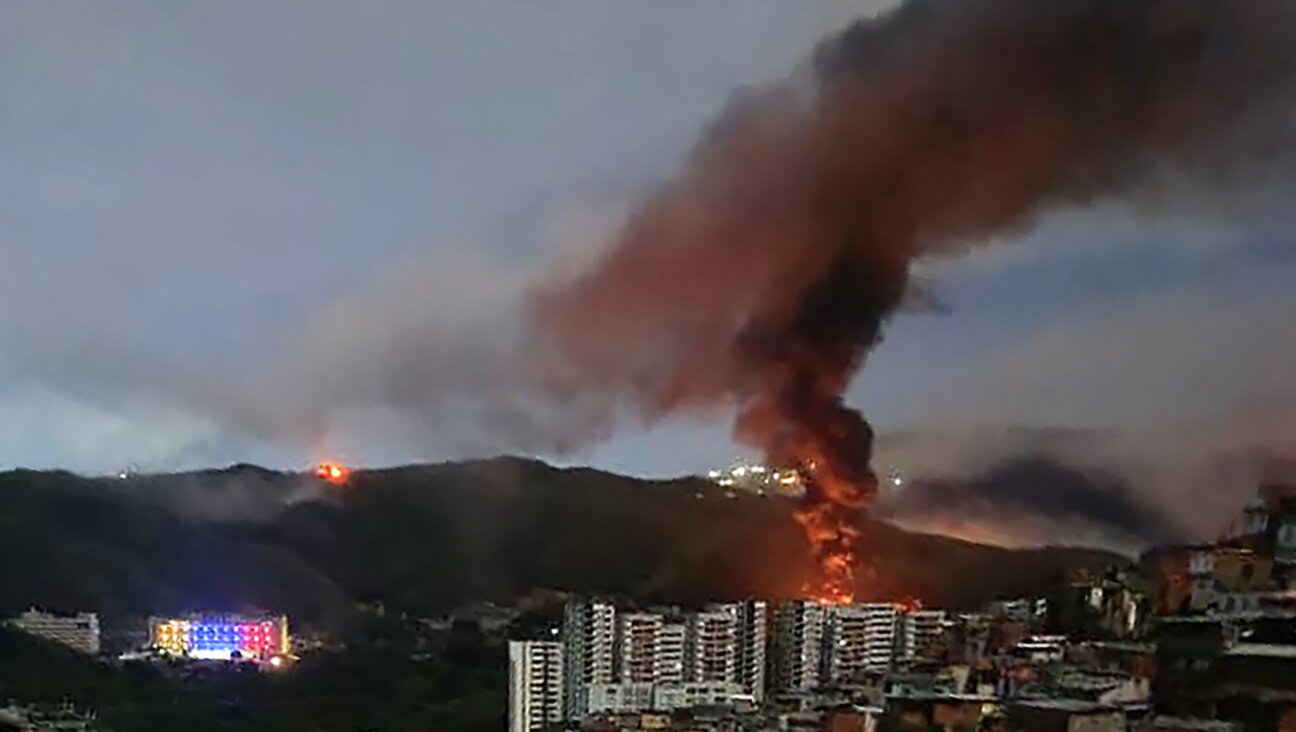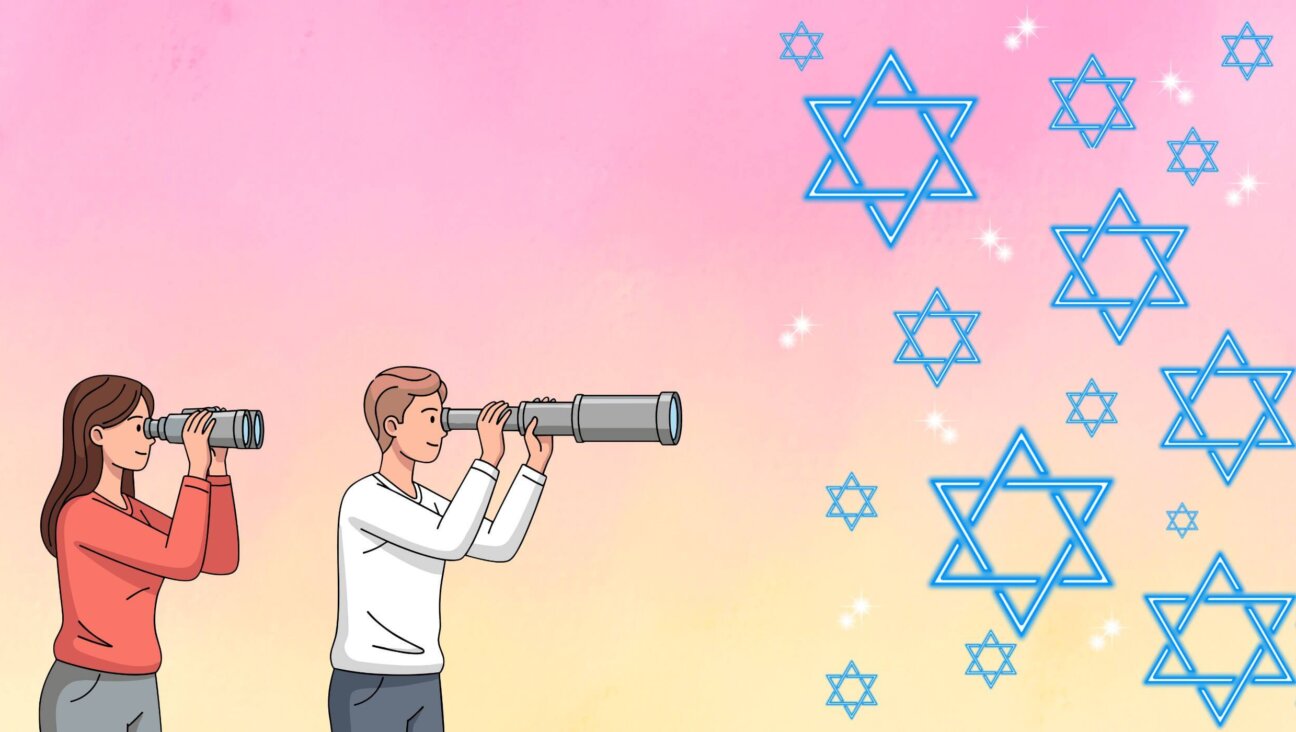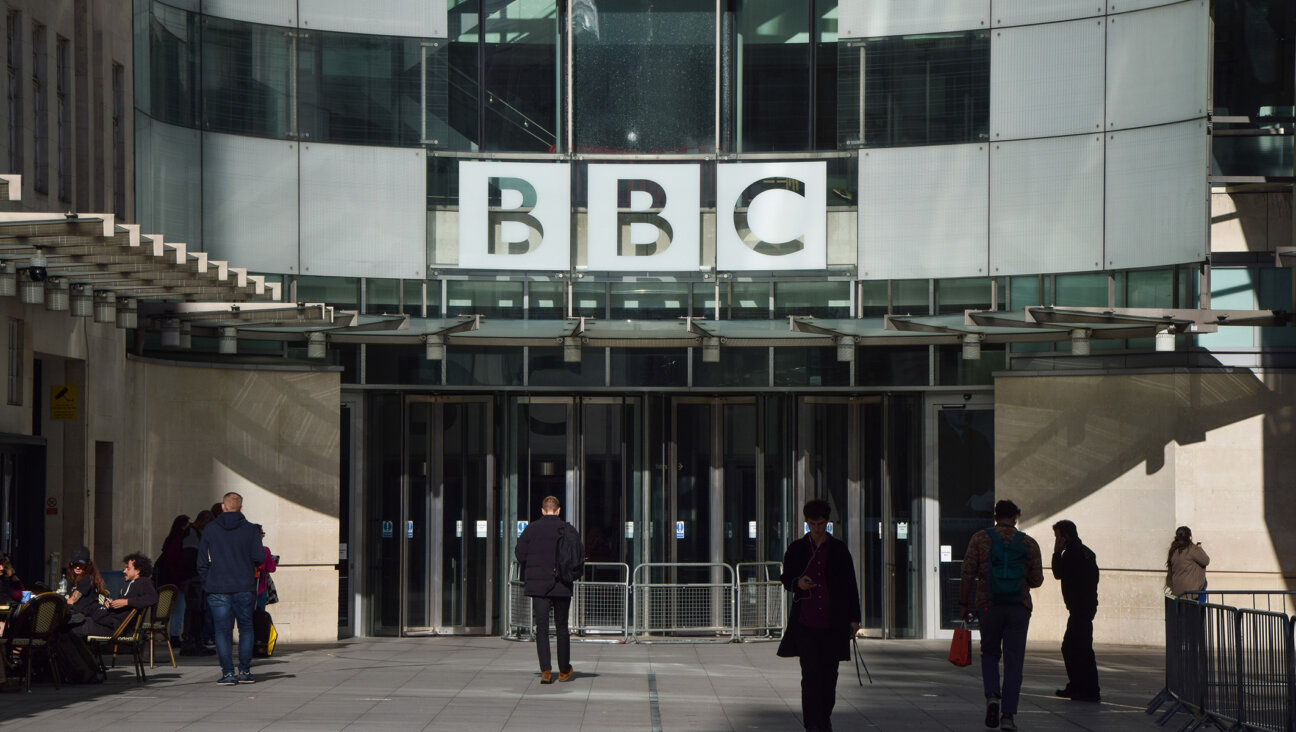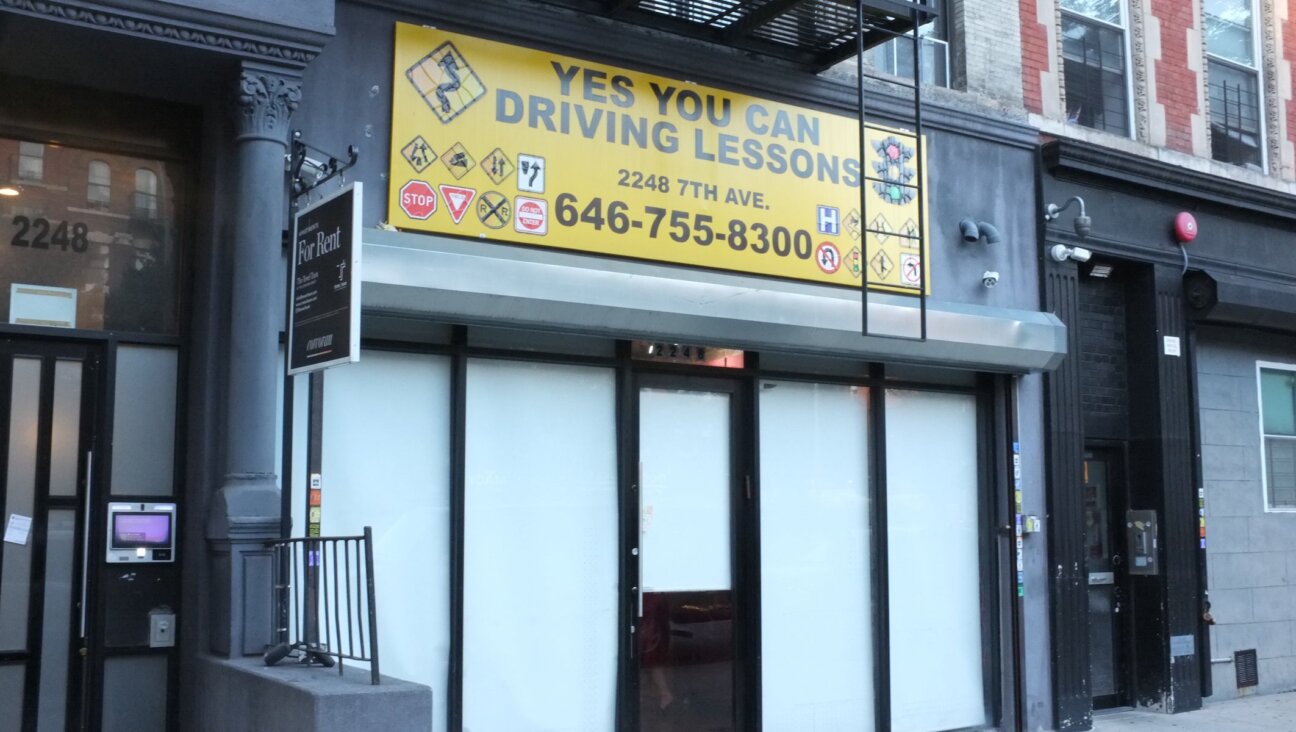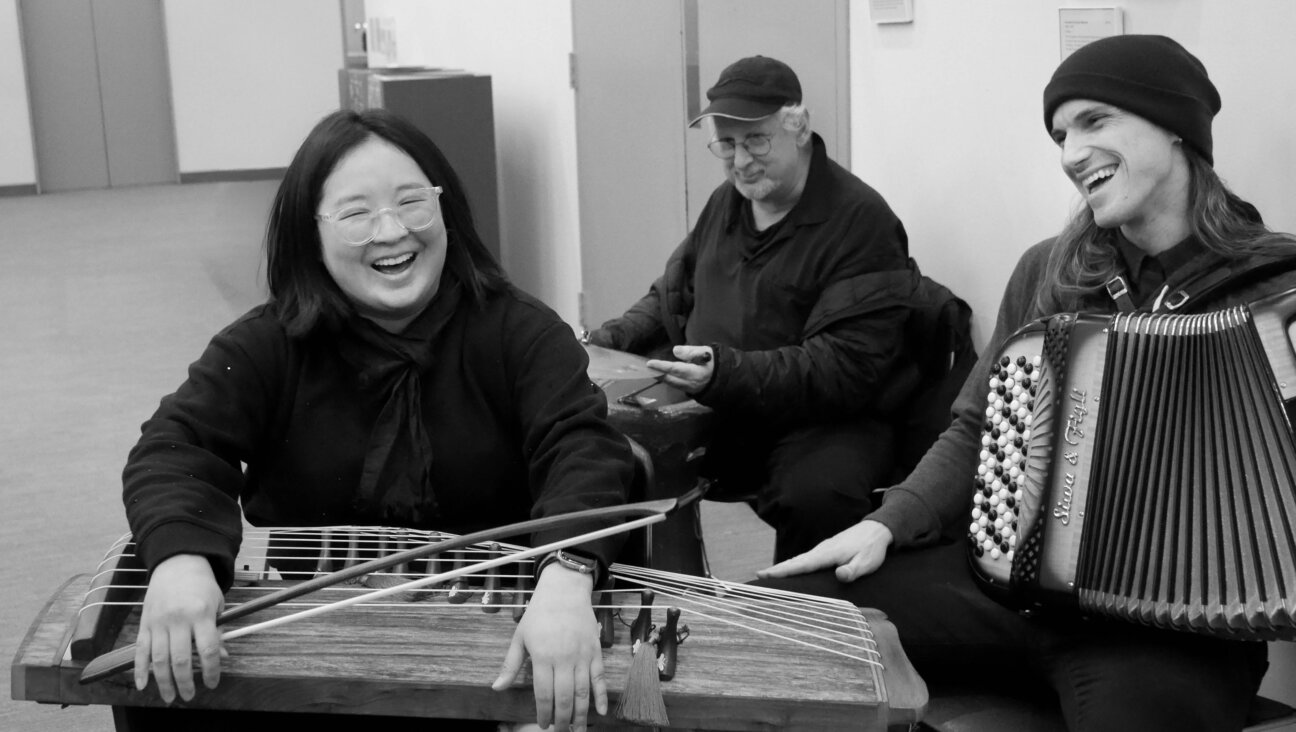A settler killed a Palestinian farmer, and what happened next
How helping to rescue a donkey taught me more about Hamas

Graphic by Angelie Zaslavsky
TEL AVIV — My phone pinged Monday at 3 a.m. with a bizarre request from a Facebook friend: Would I be willing to go to a Palestinian village deep inside the occupied West Bank to help save a dying donkey?
I barely knew this person. He apparently had seen on Facebook that I speak Arabic and, as a tour guide, travel regularly to the West Bank. Also: He doesn’t have a car.
The donkey was near As-Sawiya, a centuries-old farming village of about 3,000 people not far from Nablus. About 60 members of seven families had gone into their olive groves on Saturday for the annual harvest. Men, women, children, grandparents and great-grandparents brought pruning tools, ladders, gloves and baskets. They were singing and laughing and celebrating while they were performing this traditional multi-generational extended-family event.
While they were harvesting the olives, according to Israeli news reports, four Orthodox Jewish men sporting side-locks and side-arms left Rehelim, a nearby settlement of about 1,000 Israelis, and hiked into the valley. The Palestinians who were there told me the settlers yelled at them to leave, saying the land belonged to Rehelim. In fact, Rehelim was built illegally in the 1990s on land that belongs to the people of As-Sawiya.
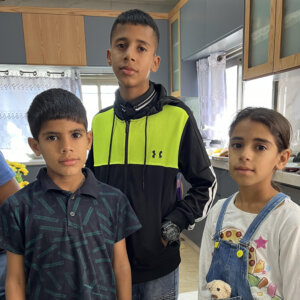
Some of the farmers left immediately. One of the settlers threatened to kill the others if they did not follow, the villagers told me. Bilal Muhammad Saleh, who was 40, was shot twice in the hand and once in the chest, dying instantly in front of his four children: Moosa, who is 8, Mais (9), Malak (13), and Muhammad (14).
An off-duty soldier was arrested on Sunday, according to news reports, and is suspected of killing Saleh with his military-issued rifle. He has not been publicly identified.
A spokesperson for the settlers said the shooting was in self-defense, describing Saleh as a terrorist who was throwing rocks at the settlers. I find this ludicrous. How can a father in pruning gloves standing on his own land next to his children and his donkey be a terrorist?
The settlers were on land not their own, threatening Palestinians. The videos I watched were shot from too far away to see if any Palestinians were throwing rocks, but if they were, the settlers could have easily gone home and filed a report with the police. And this all happened on Shabbat, the holy day of rest. Even carrying a weapon outside one’s community is not permitted.
I imagine the settlers returned to Rehelim in time for Shabbat lunch. The people of As-Sawiya, meanwhile, had a funeral. They told me that they wanted to go back and collect their farming implements and the donkey, who was tied up to a tree, but were afraid to return to the grove for fear of attack by settlers.
That’s how I ended up driving 56 kilometers by myself in my Kia Niro on Monday morning. Before I got out to meet Saleh’s surviving relatives and neighbors, I put on my big, light gray yarmulke, hoping this might give us some cover from any settlers as we recovered the donkey, who had had nothing to eat and drink for three days.
I met a group of five villagers on the road, and we walked down into the valley, through rocks and bushes, for about five minutes. There were actually two donkeys, neither of which had names. We untied them, and retrieved some pruning equipment and harvested olives, then hiked back up to the road.
The donkeys lumbered slowly. As we got into our cars, an old man made a braying sound to get the donkeys to keep moving. We had to drive back to the village on a dirt road because the Israeli army has closed many roads for security reasons since the Oct. 7 attack.
The old man must have fed the donkeys. I went back to Saleh’s home, where I was feted with a generous breakfast of hummus, fried eggplant, Arabic salad and more. I ate some bread with zaatar and oil and drank tea as the villagers introduced me to Saleh’s children and those of his brother Hisham, who had been arrested Saturday for waving a Hamas flag.
They showed me a video, shot before the funeral, in which Hisham said in Arabic that he did not want any flags flown during the funeral, because he did not want to politicize it. I believed them. But later in the day when I was already back in Tel Aviv, a spokesperson for the settlers showed me a video of Hisham waving the flag at a rally protesting the murder later in the afternoon.
I had asked someone from the village if there is support for Hamas in the West Bank. He said yes, and that it’s growing. Why? He spoke about the humiliation Palestinians face daily because of Israeli checkpoints, said that settlers steal their land, cut down their trees, abuse them and occasionally kill them. He said the Palestinian Authority is corrupt and ineffective, and that the Israel Defense Forces and Israeli police officers side with the settlers. He said the international community has failed to help.
I pressed him. How could anyone support despicable terrorists like Hamas, who slaughtered some 1,400 Israelis and abducted another 240, most of them innocent civilians like Saleh, burned alive in their homes or massacred at a music festival?
His response surprised me. Russian President Vladimir Putin is massacring civilians in Ukraine, he pointed out. We agreed this is despicable. But if Putin had sent soldiers to the Dagestan airport to kill the antisemites who attacked a plane that had just landed from Israel, he said, all of Israel would be thankful. The enemy of my enemy is my friend, he said.
The last thing Israel needs in the middle of this war is to push the Palestinians of the West Bank into the arms of Hamas. But that’s what happens when armed settlers run amok in the olive groves.
It is in Israel’s best interest to restore law and order in the West Bank. Let the IDF catch or kill Palestinian terrorists and let a new security entity be established solely for the purpose of safeguarding the lives of Palestinians from the abuse of the settlers and from the army.
The right place to start is with justice for the killing of Bilal Saleh. The soldier accused of shooting him must be prosecuted to the full extent of the law. It’s not only right; it’s good for Israel.
Correction: An earlier version of this article misstated the event at which Hisham was arrested for waving a Hamas flag. It was at a rally protesting the murder, not at the funeral. Also, it was implied that the author learned that the victim’s brother flew a Hamas flag during his breakfast conversation in the village. In fact, he only learned that later, after he had left.
